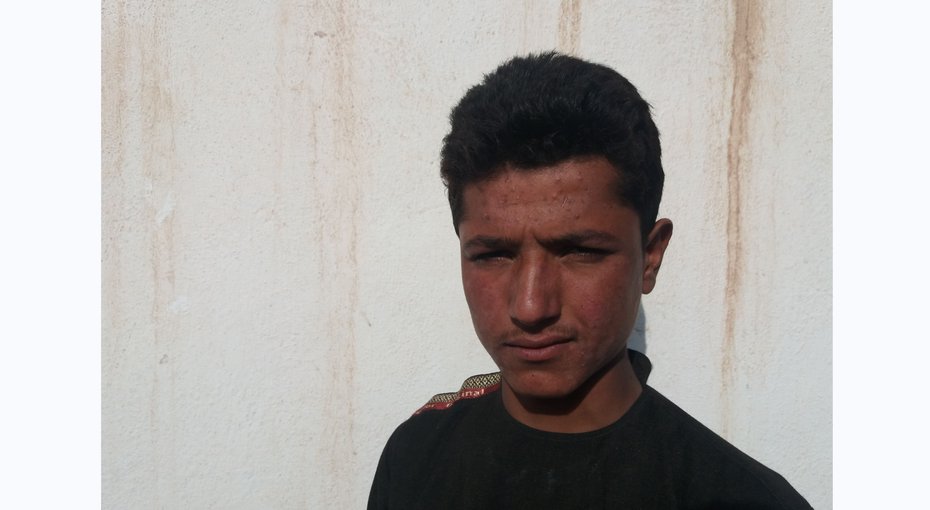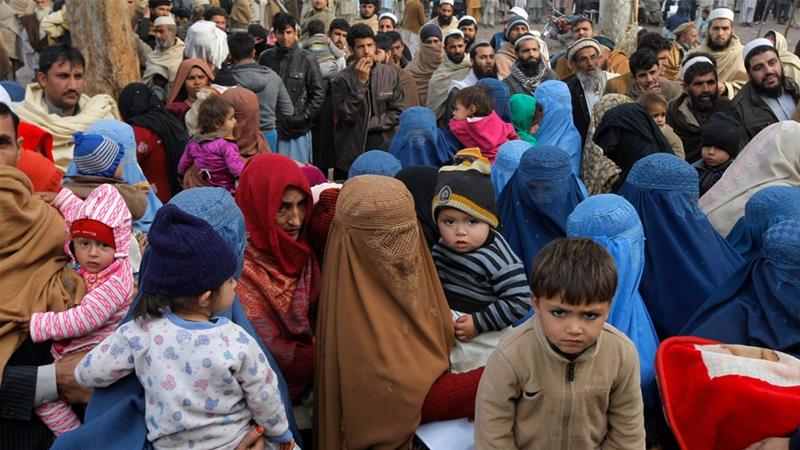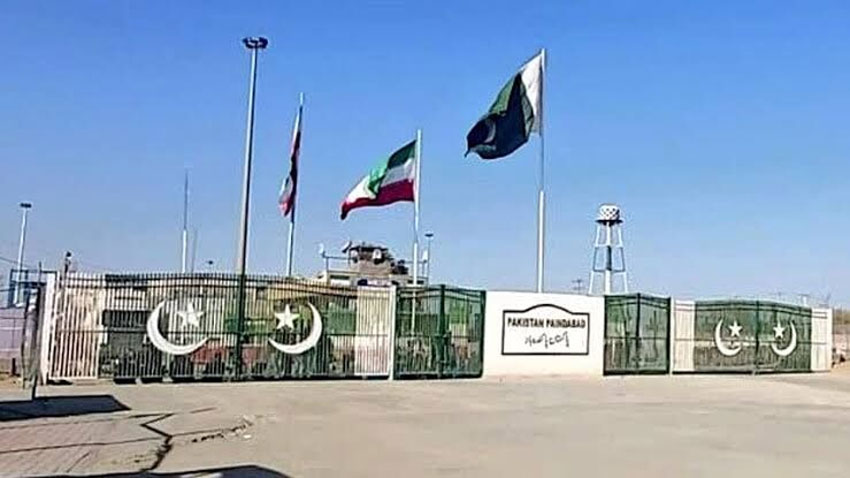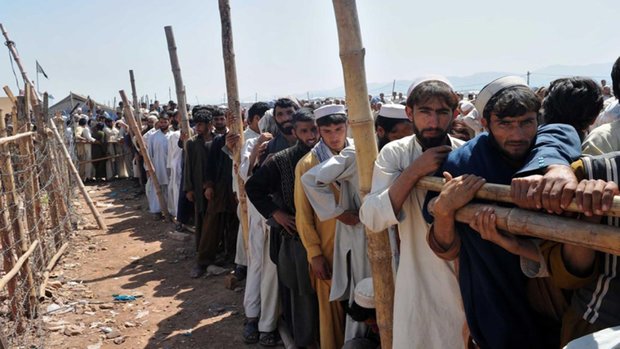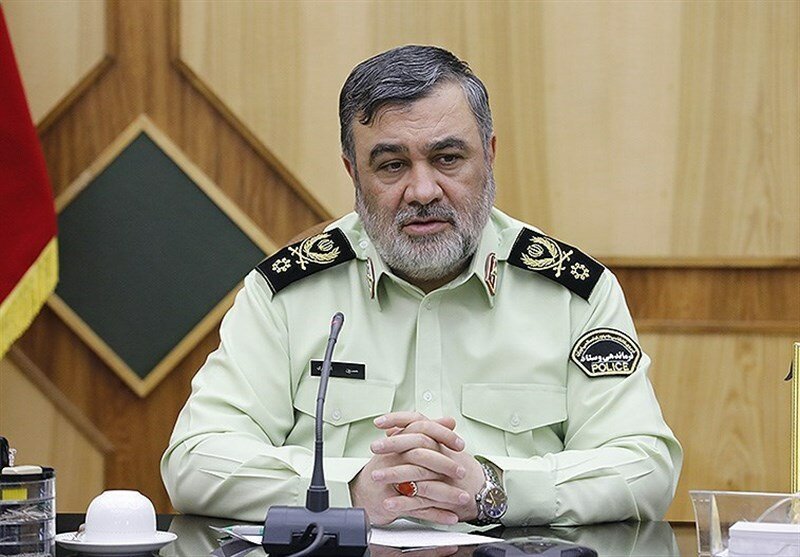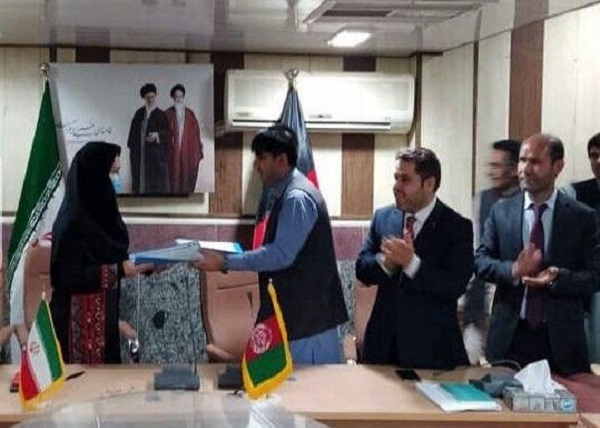The following article was written by an Iranian citizen journalist on the ground inside the country, who writes under a pseudonym to protect his or her identity.
Publish dateSaturday 15 December 2018 - 06:44
Story Code : 175919
AVA- Asef is 15 and lives in the city of Shindand in the western Afghan province of Herat on the border with Iran. The unending war between Afghan government forces and the Taliban has devastated the economy of Shindand and many residents of the city are desperate for work.
Like many of his townsmen, Asef decided that Iran was the place where he could find work. He packed his bag and set out, but he failed to finish his journey and Iranian border guards returned him to Herat.
So he got in touch with a human trafficker, someone he says he knew from before. “We contacted him from Shindand and he came,” he says. “He put me in a black van and took me to the Islam Qala border.”
The trafficker assured Asef that he would get him to Iran with no problems. “The smuggler told me that I must trust him completely,” Asef says. “He said he was an expert in smuggling people into Iran and has friends on the Iranian side of the border so he could get me in safe and sound and without the border guards knowing about it.”
After the trafficker dropped off Asef and about 10 other migrants near the Islam Qala border, they were forced to march non-stop toward Iran for several hours. “It was mountainous,” he says. “I was very hungry and thirsty but there was nothing to eat or drink in the mountains. We marched seven or eight hours in Afghanistan to reach Iran. It was 9pm when we entered Iran.”
“When we entered Iran it was nighttime and I was afraid,” Asef says. “The night was a bit cold and I had not brought enough clothing to keep warm. I shivered a lot that night. The smuggler had given us some dry bread and a little water, telling us that there would be no more and we had to do with what we had until we reached our destination.”
The moment they stepped onto Iranian soil border guards patrolling the area arrested them. One trafficker accompanying them escaped immediately after he sensed the Iranian patrols and was not arrested with the others. “It was the first time I had seen Iranian border guards from close up,” Asef says. “I was afraid they would shoot us. I had heard that Iranians shoot Afghans who enter Iran illegally. But, thank God, the Iranian border guards did not kill us.”
No Shooting, But Beatings
But he says that the border guards did curse at them and beat them. Afterward, says Asef, “they took us to the guardhouse and we were there until the morning, when they fingerprinted us and recorded our names. Then they loaded us into a car. Each of us had 10 tomans. The Iranian border guards took away our money and gave us the fare to take the bus to the camp in Sefid Sang [in the Iranian province of Razavi Khorasan].”
Iran sends back to Afghanistan via the Dogharoon border crossing in Razavi Khorasan. Before Asef had set off, he arranged with to pay the trafficker $200 after he got to Iran and found a job. So when he returned to Afghanistan, Asef says he refused to pay.
Since the United States left the nuclear agreement and re-imposed harsh sanctions on the Islamic Republic earlier this year, the value of the Iranian currency has fallen sharply in comparison with the Afghan currency. This has created financial problems for Afghans working in Iran, most of whom have to send the money they earn to their families in Afghanistan to support them. According to Asef, the reason his parents agreed with his decision to go to Iran was that the money sent by his brothers who work in Iran — a million tomans, around $240 — was no longer enough to support the family.
“One went to Iran two years ago and the other seven months ago. They now work in Garmsar area [a city near Tehran],” he says.
Even though Asef has just recently been turned back from Iran’s border, he says he is determined to try again. After all, he and his family do not have many choices.
Like many of his townsmen, Asef decided that Iran was the place where he could find work. He packed his bag and set out, but he failed to finish his journey and Iranian border guards returned him to Herat.
So he got in touch with a human trafficker, someone he says he knew from before. “We contacted him from Shindand and he came,” he says. “He put me in a black van and took me to the Islam Qala border.”
The trafficker assured Asef that he would get him to Iran with no problems. “The smuggler told me that I must trust him completely,” Asef says. “He said he was an expert in smuggling people into Iran and has friends on the Iranian side of the border so he could get me in safe and sound and without the border guards knowing about it.”
After the trafficker dropped off Asef and about 10 other migrants near the Islam Qala border, they were forced to march non-stop toward Iran for several hours. “It was mountainous,” he says. “I was very hungry and thirsty but there was nothing to eat or drink in the mountains. We marched seven or eight hours in Afghanistan to reach Iran. It was 9pm when we entered Iran.”
“When we entered Iran it was nighttime and I was afraid,” Asef says. “The night was a bit cold and I had not brought enough clothing to keep warm. I shivered a lot that night. The smuggler had given us some dry bread and a little water, telling us that there would be no more and we had to do with what we had until we reached our destination.”
The moment they stepped onto Iranian soil border guards patrolling the area arrested them. One trafficker accompanying them escaped immediately after he sensed the Iranian patrols and was not arrested with the others. “It was the first time I had seen Iranian border guards from close up,” Asef says. “I was afraid they would shoot us. I had heard that Iranians shoot Afghans who enter Iran illegally. But, thank God, the Iranian border guards did not kill us.”
No Shooting, But Beatings
But he says that the border guards did curse at them and beat them. Afterward, says Asef, “they took us to the guardhouse and we were there until the morning, when they fingerprinted us and recorded our names. Then they loaded us into a car. Each of us had 10 tomans. The Iranian border guards took away our money and gave us the fare to take the bus to the camp in Sefid Sang [in the Iranian province of Razavi Khorasan].”
Iran sends back to Afghanistan via the Dogharoon border crossing in Razavi Khorasan. Before Asef had set off, he arranged with to pay the trafficker $200 after he got to Iran and found a job. So when he returned to Afghanistan, Asef says he refused to pay.
Since the United States left the nuclear agreement and re-imposed harsh sanctions on the Islamic Republic earlier this year, the value of the Iranian currency has fallen sharply in comparison with the Afghan currency. This has created financial problems for Afghans working in Iran, most of whom have to send the money they earn to their families in Afghanistan to support them. According to Asef, the reason his parents agreed with his decision to go to Iran was that the money sent by his brothers who work in Iran — a million tomans, around $240 — was no longer enough to support the family.
“One went to Iran two years ago and the other seven months ago. They now work in Garmsar area [a city near Tehran],” he says.
Even though Asef has just recently been turned back from Iran’s border, he says he is determined to try again. After all, he and his family do not have many choices.
Source : خبرگزاری Afghn Voice Agency(AVA)
avapress.net/vdcb8sb89rhbz9p.4eur.html
Tags
Top hits
